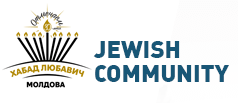They look like a picture-perfect family — Moshe standing next to his wife Luba, who is holding the cutest little baby in her arms. Just looking at them you could never imagine the long and arduous story they carry with them.
FROM KISHINEV TO ISRAEL
THE WEISSMAN FAMILY LIFE STORY
They look like a picture-perfect family — Moshe standing next to his wife Luba, who is holding the cutest little baby in her arms. Just looking at them you could never imagine the long and arduous story they carry with them.
Moshe’s journey began long before he met his wife, and took him from the Ural Mountains, near Siberia, to the Krukova Labor Camp, about 20 miles away from Kishinev. Moshe, who is 45 years old today, spent nine years in labor camps before the end of Communism – four years in the Ural Mountains and the next five in the Krukova labor camp in Moldova.
Moshe would rather not discuss the suffering he endured during those years. Now, he’s just full of gratitude to G-d for having survived. The fact that he was a Jew definitely didn’t help him, although at the time, he didn’t even know what being a Jew meant. In his last year in Krukuva, a seemingly chance occurrence changed Moshe’s life. A friend in jail told him about an article he had read in the newspaper written by the Chief Rabbi of Moldova. That was all. No more details were available.
To this day, Moshe can’t explain it, but something deep inside of him impelled him to sit down and write a long, very emotional letter about his life to this rabbi, someone whose name and address he didn’t even know. The envelope was addressed to the “Chief Rabbi of Kishinev and Moldova” – no name or address attached to it. But a miracle happened. Rabbi Abelsky received the letter and the following day the rabbi walked into the prison camp to visit Moshe. Even today, tears roll down Moshe’s eyes when he remembers how a rabbi with a long white beard came to visit him and became like a “second father,” as Moshe calls him.
Reb Zalman’s first action was to explain to the Krukova camp manager that because Moshe was a Jew, he had the right to rest on the Sabbath. In prison Moshe had a lot of free time to search and find out about his Jewish background, to learn about the Jewish holidays, etc. Nine months later Moshe was a free man. Rabbi Abelsky offered him a place to stay (and of course to study) in the yeshiva for a couple of months before he reentered the big world. While Moshe studied at the yeshiva, Mrs. Abelsky introduced him to Luba Zotkin, one of Mrs. Abelsky’s students. Luba’s son, Shmuel, studied at our Jewish school, and like all the other students, he was invited along with his mother, to partake of a Sabbath meal at the Abelsky’s.
It wasn’t long before Moshe and Luba made aliyah and stood under the chupah in the city of Haifa. Today, they are the happy parents of a little daughter, Ruty. Moshe works for the well-known organization Yad L’Achim, helping his brothers and sisters that are coming from the former Soviet Union have an easier beginning in Israel, the land of their dreams. It’s been a long haul; no wonder Moshe calls Rabbi Abelsky his second father.

Mr & Mrs. Moshe Weissman in the Lubavitch headquarters “770”




